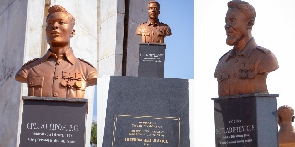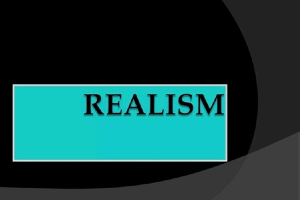Exactly 76 years ago today, on February 28, 1948, several ex-servicemen who were marching from Accra to the Christiansburg Castle to present a petition to the British Governor over their unpaid war benefits were shot.
The shooting of the ex-servicemen, which has become popularly known as the "February 28 Christiansburg Crossroads Shooting incident," happened after they were intercepted at the crossroads by a contingent of armed policemen.
The three men - Sergeant Adjetey, Corporal Attipoe, and Private Odartey Lamptey - all members of the then Gold Coast Regiment of the Royal West African Frontier Force, were shot dead after refusing the order of a British Police Superintendent Colin Imray to stop their match to the castle.
The event precipitated the country's struggle for independence and is marked annually in honour of the three ex-servicemen who were killed during their march to the seat of the colonial government on February 28, 1948.
During the Second World War, the ex-soldiers fought alongside the allied forces in the Gold Coast Regiment of the Royal West African Frontier Force. However, they returned home poor because they were not paid their gratuities.
After several appeals to the colonial government to consider their plight had failed, the ex-servicemen decided that a direct appeal should be made to the British colonial Governor of the Gold Coast, hence the march.
Read the full story published on February 28, 2013, by Nana Akwah below:
The precursor to the event was the boycott of the Whiteman goods. The reason behind the boycott was to register dissent toward the manner the Whiteman treated the African. There was so much exploitation in sale of goods. As a chief of Osu Alata, Nii Bonne is credited for rallying the masses with his anti-inflation campaign, which he personally financed and waged to successful conclusion, thus relieving the mass of common people from economic distress.
Sixty-five years ago today, that’s 28th February 1948, negotiated price reduction was to come into effect and the boycott, which had been in place since 26th January 1948 was to be called off. This was the event that really sparked off the great agitation in colonial Gold Coast. The price decrease, which was to end on 28th February, 1948, was not well handled.
The expectations of shoppers were not met as anticipated and indigenes killed for no provocation. The same day, a deputation of unarmed ex-servicemen, led by Sergeant Adjetey and others were fired upon on by the police on their way to present a petition to the Governor at the Christiansborg Castle (Osu Castle).
It was the incident that propelled the wave of riots.
Sergeant Adjetey and others from the Ex-Servicemen’s Union were killed and some of the demonstrators were also wounded. The killing of the ex-servicemen added fuel to the discontentment and charged atmosphere, sparking off spontaneous ‘riots’. The news of the shooting infuriated people, and they first took to looting and the burning of shops of the Europeans and the Syrian merchants. Those who master-minded the boycott were the Joint Provincial Council Chiefs. It was with their backing that on New Year’s Day 1948, Nii Bonne, Chief of Osu Alata, addressed an emotional message to his fellow chiefs, calling upon them to fight and die for the liberty and freedom of the country.
The boycott was very effective, and worked well. It was observed country wide as well. Just like the boycott, when the “Riots” started, it took on the same country wide spread. Properties worth over £2 million were destroyed and over 137 people killed.
In a broadcast by Governor Sir Gerald Creasey, in which a “State of Emergency” was declared, he spoke of conspiracy, and that the leading members of the United Gold Coast Convention had been arrested. The “Big Six,” or call them “Communists,” were arrested. One could easily see through the plotting of the British because it was their outlook that was more communist.
In reality, the United Gold Coast Convention had little connection with the Ex-Servicemen’s Union or the Anti-Inflation Committee of Nii Bonne. At the time the “Riots” broke out J.B. Danquah and Kwame Nkrumah were at a meeting outside Accra, and none of the leaders had prior knowledge. They never anticipated riots.
It was through The “Big Six” and Nii Bonne's influence, during the period of agitation, which became the tool for Ghana’s eventual decolonization.
Sixty-five years ago, it was a failed negotiated price and the gunned down of unarmed Ex-Servicemen that sparked off the “riots” and it bring us really ‘freedom and liberty’.
I doff my hat for all who believe genuine justice than forced and faked peace.
“You are never too old to set another goal or to dream a new dream,” C. S. Lewis.
BAI/AE
Meanwhile, watch the most recent episode of The Lowdown GhanaWeb TV below:
Ghana’s leading digital news platform, GhanaWeb, in conjunction with the Korle-Bu Teaching Hospital, is embarking on an aggressive campaign which is geared towards ensuring that parliament passes comprehensive legislation to guide organ harvesting, organ donation, and organ transplantation in the country.
General News of Wednesday, 28 February 2024
Source: www.ghanaweb.com













